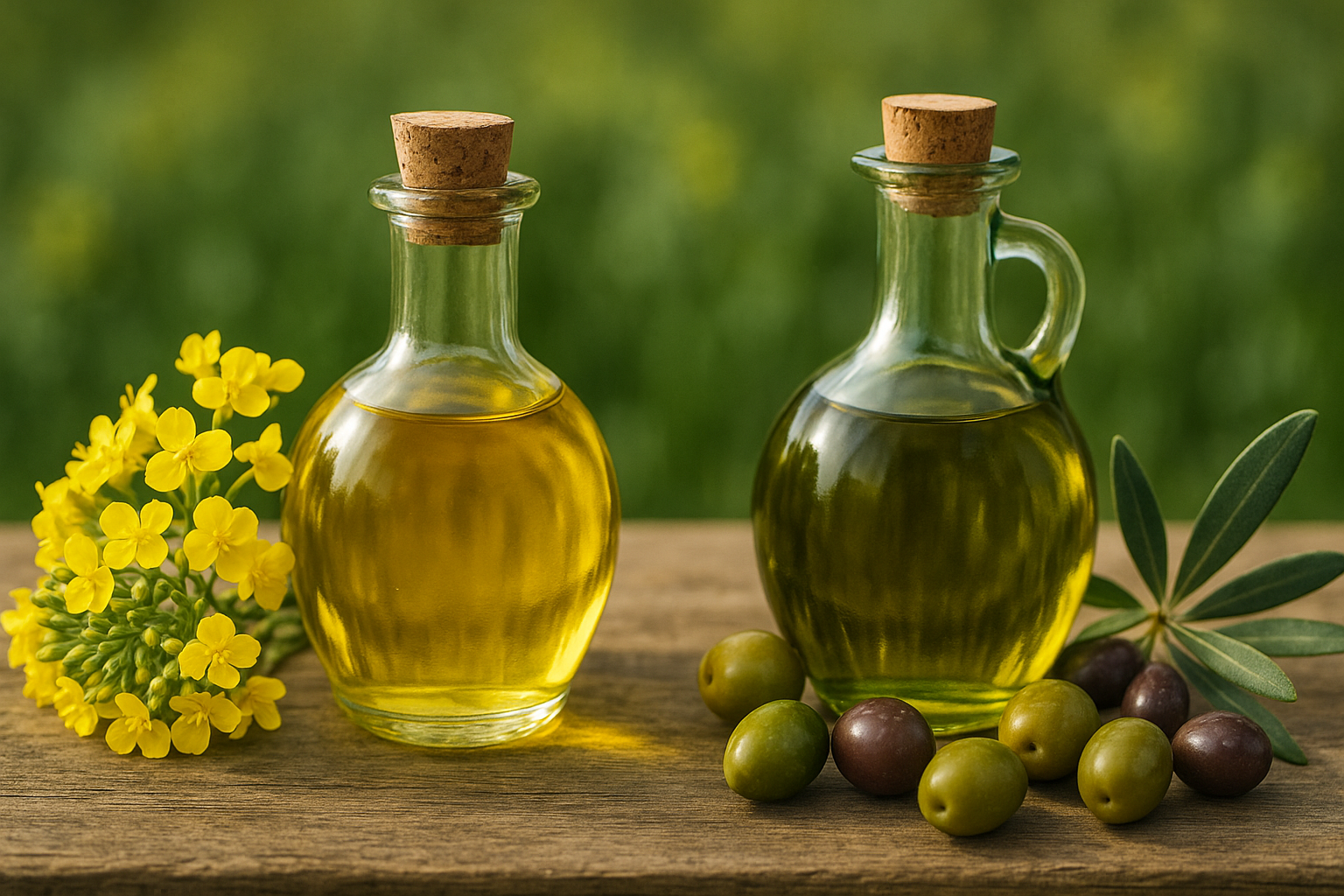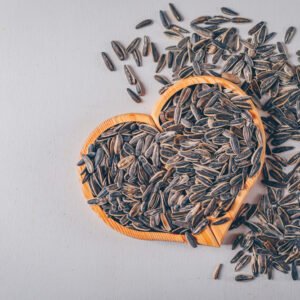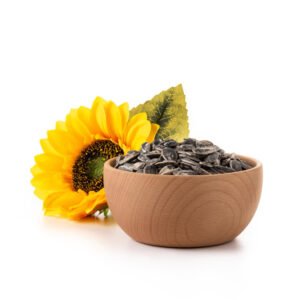Choosing the right cooking oil can feel overwhelming with so many options available today. Two oils that often spark debate among health-conscious cooks and nutritionists are rapeseed oil and olive oil. Both offer distinct nutritional profiles, cooking properties, and health benefits that make them popular choices in kitchens worldwide.
Understanding the differences between rapeseed oil vs olive oil helps you make informed decisions about which oil suits your cooking needs, health goals, and budget. Let’s explore these two oils side by side to help you determine which one deserves a place in your pantry.
What is Rapeseed Oil?
Rapeseed oil comes from the seeds of the rapeseed plant, also known as canola in North America. The bright yellow flowering plant belongs to the Brassica family, which includes mustard, cabbage, and broccoli. Modern rapeseed oil undergoes processing to reduce naturally occurring compounds called erucic acid and glucosinolates.
The oil features a light golden color and mild flavor that doesn’t overpower dishes. Cold-pressed varieties retain more nutrients and offer a slightly nuttier taste compared to refined versions. Rapeseed cultivation thrives in cooler climates, making it a popular crop in Canada, Europe, and parts of Asia.
Understanding Olive Oil Types
Olive oil comes from pressing whole olives and ranges from extra-virgin to refined varieties. Extra-virgin olive oil represents the highest quality, extracted through cold-pressing methods that preserve natural antioxidants and flavors. This grade contains no chemical solvents and maintains the fruit’s original characteristics.
Virgin olive oil undergoes similar extraction methods but may have slight defects in taste or aroma. Regular olive oil, sometimes labeled as “pure,” combines refined oil with small amounts of virgin oil. Light olive oil refers to the flavor intensity, not calorie content, and undergoes more processing.
The oil’s color ranges from golden yellow to deep green, depending on olive variety and processing methods. Mediterranean countries like Italy, Spain, and Greece dominate olive oil production worldwide.
Nutritional Comparison: Rapeseed Oil vs Olive Oil
When comparing rapeseed oil vs olive oil nutritionally, both oils provide similar calorie content at approximately 120 calories per tablespoon. The key differences lie in their fatty acid profiles and antioxidant content.
Rapeseed oil has the lowest amount of saturated fat of any oil, with just half the amount found in olive oil. This makes rapeseed oil particularly appealing for those managing cholesterol levels.
Fatty Acid Breakdown
Rapeseed Oil:
- Saturated fat: 7%
- Monounsaturated fat: 59%
- Polyunsaturated fat: 34%
- Omega-3 fatty acids: 9-11%
Olive Oil:
- Saturated fat: 14%
- Monounsaturated fat: 73%
- Polyunsaturated fat: 13%
- Omega-3 fatty acids: 0.8%
Rapeseed oil contains ten times more Omega-3 than olive oil, providing beneficial alpha-linolenic acid that supports heart health and reduces inflammation.
Vitamin and Antioxidant Content
Extra-virgin olive oil shines in antioxidant content, particularly polyphenols that provide anti-inflammatory and cardioprotective benefits. The content of squalene in rapeseed oil is approximately 47.8 mg/Kg, which is far less than that in refined olive oil (4784.28 mg/Kg).
Both oils contain vitamin E, which protects cells from oxidative damage. Rapeseed oil provides tocopherols, while olive oil offers both tocopherols and polyphenolic compounds that contribute to its distinctive flavor and health benefits.
Health Benefits of Rapeseed Oil
Rapeseed oil offers several health advantages that make it worth considering for your cooking routine:
Heart Health Support: Rapeseed oil is high in healthy unsaturated fats, the type that help lower cholesterol and support cardiovascular health.
Omega-3 Rich: The oil’s omega-3 content supports brain function, reduces inflammation, and may help lower blood pressure.
Low Saturated Fat: With minimal saturated fat content, rapeseed oil aligns with dietary recommendations for heart-healthy eating patterns.
Vitamin E Source: This antioxidant vitamin protects cell membranes from damage and supports immune function.
The oil’s neutral flavor profile makes it versatile for various cooking methods without masking food flavors.
Health Benefits of Olive Oil
Olive oil, particularly extra-virgin varieties, has earned recognition for its impressive health profile:
Cardiovascular Protection: From epidemiological studies, the evidence for cardiovascular protection afforded by extra-virgin olive oil is ‘convincing’, making it a cornerstone of heart-healthy diets.
Anti-Inflammatory Properties: Polyphenols in extra-virgin olive oil help reduce inflammation markers in the body.
Cancer Prevention: For cancers the evidence is ‘limited-suggestive’, especially estrogen receptor-negative breast cancer, though more research continues.
Antioxidant Power: The oil’s phenolic compounds protect against oxidative stress and cellular damage.
Digestive Health: Olive oil may support healthy digestion and nutrient absorption.
Cooking Properties and Best Uses
Understanding how rapeseed oil vs olive oil performs in cooking helps determine the best applications for each:
Rapeseed Oil Cooking Applications
Smoke Point: 204°C (400°F) for unrefined, higher for refined versions
Best For:
- High-heat cooking methods like stir-frying
- Deep frying and roasting
- Baking where neutral flavor is desired
- Salad dressings with delicate ingredients
The oil’s stability at high temperatures makes it excellent for techniques requiring sustained heat without breaking down or producing harmful compounds.
Olive Oil Cooking Applications
Smoke Point:
- Extra-virgin: 160-190°C (320-374°F)
- Refined: 199-243°C (390-470°F)
Best For:
- Low to medium-heat cooking
- Finishing dishes and drizzling
- Mediterranean-style preparations
- Salad dressings where flavor enhancement is desired
Extra-virgin olive oil works best at lower temperatures to preserve its beneficial compounds and prevent bitter flavors from developing.
Cost and Availability Considerations
Price often influences oil selection, and rapeseed oil typically costs less than quality olive oil. The price difference reflects production methods, geographical factors, and market demand.
Rapeseed oil’s local production in many regions reduces transportation costs and environmental impact. Olive oil, particularly extra-virgin varieties, commands higher prices due to traditional production methods and import costs in non-Mediterranean regions.
Both oils are widely available in supermarkets, with rapeseed oil often found in the cooking oil aisle and olive oil frequently merchandised separately or in international sections.
Environmental and Sustainability Factors
Sustainability considerations play an increasing role in food choices. Rapeseed cultivation requires fewer resources than olive production and thrives in diverse climates. The crop also provides benefits for soil health through crop rotation systems.
Olive production faces challenges from climate change, water scarcity, and changing weather patterns in traditional growing regions. Transportation of olive oil to distant markets also increases its carbon footprint.
Both oils can be produced using sustainable farming practices, with organic and environmentally responsible options available from various producers.
How CMS Industries Supports Agricultural Excellence
CMS Industries stands at the forefront of agricultural innovation, supporting farmers and agribusinesses in producing high-quality oil seed crops. As a leading agricultural products manufacturer and supplier in India, CMS Industries provides comprehensive solutions that enhance crop productivity and sustainability.
The company’s expertise in oil seed production encompasses the entire supply chain, from premium seeds to advanced crop nutrition products. Through partnerships with agricultural manufacturers, CMS Industries helps create an ecosystem where farmers can access the tools and knowledge needed to produce superior oil seed crops, including varieties used for both rapeseed and other beneficial cooking oils.
CMS Industries’ commitment to sustainable farming practices aligns with the growing demand for environmentally responsible agricultural products. Their research-driven approach helps farmers optimize yields while maintaining soil health and reducing environmental impact, ensuring that high-quality oil seeds reach consumers worldwide.
Making Your Choice: Rapeseed Oil vs Olive Oil
Choosing between rapeseed oil vs olive oil doesn’t require an either-or decision. Many health-conscious cooks benefit from keeping both oils in their kitchen for different purposes.
Choose rapeseed oil when you need:
- A neutral flavor that won’t compete with ingredients
- High-heat cooking capabilities
- Maximum omega-3 fatty acid intake
- Budget-friendly cooking oil option
- Lower saturated fat content
Choose olive oil when you want:
- Rich flavor enhancement in dishes
- Maximum antioxidant benefits
- Traditional Mediterranean diet compliance
- Lower temperature cooking methods
- Premium finishing oil for special occasions
Consider your cooking style, health priorities, and budget when making decisions. Some people alternate between oils based on the specific dish being prepared.
Conclusion
The rapeseed oil vs olive oil debate doesn’t have a single winner because both oils offer unique benefits that serve different culinary and nutritional needs. Rapeseed oil excels in high-heat cooking applications and provides excellent omega-3 content with lower saturated fat. Olive oil, particularly extra-virgin varieties, delivers unmatched antioxidant benefits and flavor enhancement for Mediterranean-style cooking.
Your choice depends on cooking methods, flavor preferences, health priorities, and budget considerations. Many successful home cooks integrate both oils into their kitchen repertoire, using each where it performs best.
Ready to explore premium agricultural products and learn more about quality oil seed production? Connect with CMS Industries at https://cmsindustries.org/ to discover how sustainable farming practices create the high-quality ingredients that make exceptional cooking oils possible.
FAQs About Rapeseed Oil vs Olive Oil
Q1: Is rapeseed oil safe for daily cooking?
Modern rapeseed oil is completely safe for daily use. Processing removes potentially harmful compounds, leaving a nutritious oil rich in beneficial fatty acids.
Q2: Can I substitute rapeseed oil for olive oil in recipes?
Yes, you can substitute rapeseed oil for olive oil in most recipes, though the flavor profile will be milder and more neutral.
Q3: Which oil is better for weight management?
Both oils contain similar calories per serving. The choice depends on portion control and overall dietary patterns rather than the specific oil selected.
Q4: Does heating rapeseed oil destroy its nutrients?
Rapeseed oil maintains stability at high temperatures better than olive oil, retaining more nutrients during cooking processes that require sustained heat.
Q5: How should I store these oils to maintain freshness?
Store both oils in cool, dark places away from heat and light. Olive oil may solidify in cold temperatures but returns to liquid form at room temperature.





